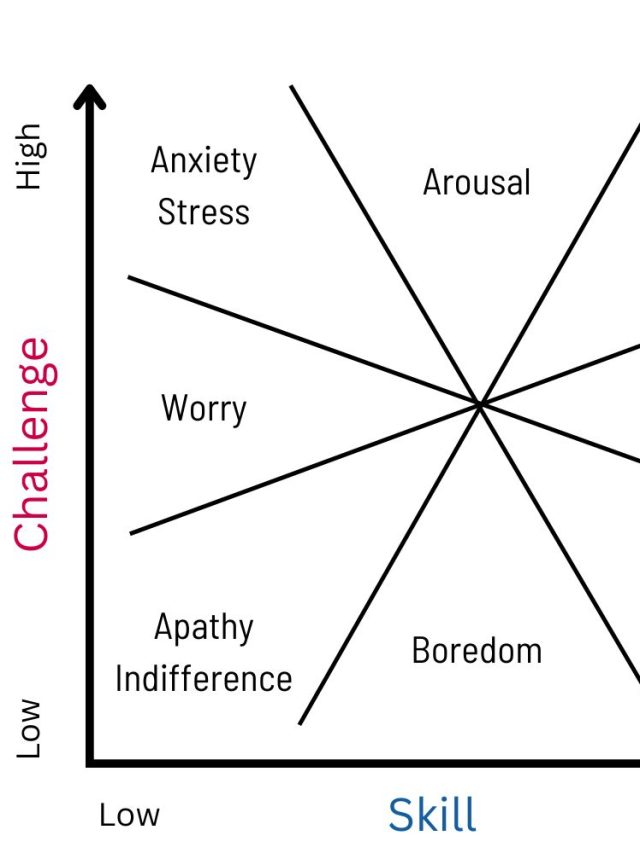How you talk to yourself affects your mental health. You can use verbal tricks to change your inner dialog to manage emotions and improve motivation, and even change your belief system.
- What’s self-talk?
- 1. More motivation: Changing the story you tell yourself
- 2. Less anger: Thinking in essence, not in details
- 3. Less anxiety: Distancing yourself from your thoughts
- 4. More self-love and self-compassion: Showing kindness through “I” statements
- 5. More empathy: Thinking from others’ points of view
- 6. Changing beliefs: Latitude of Acceptance
- Sources
What’s self-talk?
Most people have an inner dialog that occurs in their primary or secondary languages. Most of that dialog serves the function[1] of self-criticism, self-assessment, self-reinforcement, self-management, and social assessment. That dialog is a set of things you say to yourself, and it makes up your awareness and self-reflection. Together, they affect our mental health, belief systems, and approach toward society and life.
These inner dialogs are a specific kind of thought, particularly, a meta-cognitive thought which means it is based on things you’ve already thought about or perceived. Some of these are “I” statements which go like, “I shouldn’t have done that, I’m being stupid,” or “I am glorious and epic,” and others are cognitive dissonance[2] thoughts, which are stressful conflicts caused by incompatible ideas you have “I should give up smoking, but I am smoking right now.” or “I am scrolling Instagram for 1 hour, but I should be working, but I am not going to work because I want to relax to work better, but I can’t relax because I have to work”
When it comes to mental health, inner dialogs are often classified as positive, negative, or neutral self-talk. Research suggests an average healthy person has about 35% negative thoughts, and someone depressed or anxious has over 50% negative thoughts. So the goal isn’t exactly to reduce negative self-talk and change it to positive self-talk; it’s to make self-talk constructive and rephrase associated ideas. Apart from the techniques here, there are other ways to do it, they are called cognitive defusion techniques. However, in some cases like depression, extremely low self-esteem, and anxiety, you do need to work on reducing negative thoughts because they worsen your situation. Tips for that here.
Your inner dialog is a small portion of all the thoughts you have. Some self-talk is simply narrating your experience, remembering something, rehearsing a memory, or having live commentary. But inner dialog goes a bit further. It is self-talk directed toward yourself as if you are chatting with yourself and forms a large part of your mental life. The type of self-talk describes problems like biased thinking, negative evaluations of people, self-loathing, self-criticism, guilt, etc. Self-talk builds up your self-esteem, which is your attitude toward yourself, and self-concept, which is how you describe yourself. Averaging out these thoughts and seeing how negative, neutral, or positive they are, you get mental stress, peace, or healthy adjustment.
Researchers call inner dialog a society of mind[3] where our inner voice has many different “avatars” coming from culture, society, experiences, people we know, duties, responsibilities toward one another, and learning.
Fun fact: It’s hard to figure out what exactly is a thought, but researchers used brain scanning techniques to identify brain activity that indicates a change from one thought to another. They counted the changes and estimated we have about 6000 thoughts in a day[4]).
Self-talk affects your inner mental life, so changing how you talk to yourself can have specific benefits. Here are a few simple techniques to change your self-talk for more motivation, more empathy, less anxiety and anger, and fewer negative thoughts.
1. More motivation: Changing the story you tell yourself
Motivation is a tricky concept because many people have learned to believe they must wait for motivation to do something. This itself kills motivation. But since the belief is rigid, it is possible to bypass the idea of motivation by changing your inner dialog.
- Talk in the imperfect past tense[5] about activities that you once did but have now lost the motivation for – “I was working toward my goal” instead of “I had worked on my goal.” The continuous sense of “ing” in the past tense primes the brain to engage in thoughts and behaviors that are continuous by reactivating old memory systems as long as they are relevant in the future.
- Tell yourself your activity is your decision, not someone else’s expectation. It’s your brain, and you decide where to use it. This is called having an internal locus of control[6], where you assume more control over your life than others have over your life. The opposite is an external locus of control, where you believe others are responsible for things that happen to you. An external locus of control can often induce a victim or passive mindset, leading to helplessness and inaction.
2. Less anger: Thinking in essence, not in details
If you are likely to get into a lot of details, start thinking of emotions in their diluted forms as good or bad: Instead of “I don’t like what he said about XYZ, and it is pissing me off that he said that,” say, “I felt bad.” Thinking of emotions in their “global” essence, like feeling good or bad, changes the brain’s focus[7] toward a more holistic perspective instead of thinking about the details. It helps you distance yourself. So when you are fixating on the details, move your focus away from them by saying, “I felt bad” or “I felt good.” and then consider the details irrelevant.
Think: I felt bad, or I felt good
Instead of: They did this, so I got angry, and that is causing me to suffer like this, why are they doing that, they have no regard for me, do they not like me…
Thinking in “feeling good/bad” instead of details
- creates distance which allows you to dilute your emotions.
- makes it easier to focus on feeling better.
3. Less anxiety: Distancing yourself from your thoughts
How attached you are to your thoughts affects their emotional impact, so detaching helps. You can change your intrusive thoughts from a first-person perspective to a 3rd person perspective by changing all “I” and “me” statements to “He/she/they statements.” Reword your thoughts as if you are talking about a 3rd person. For example, “I am furious” will change to “he is furious.” This creates psychological distance between you and your thoughts, and because the thoughts move further away (figuratively), they reduce in intensity.

4. More self-love and self-compassion: Showing kindness through “I” statements
Self-love and self-compassion inner dialog involves being kind to yourself and reducing the strictness with which you deal with yourself. It is centered around positive self-talk, where the focus is using easy, reasonable, and optimistic words to tell yourself you are not doomed or helpless. This means you try not to hate yourself or beat yourself up because you did something wrong.
The self-serving bias[8] typically shows how we assign wins to ourselves and losses to others. So if something good happens, it’s because you did something good. If something bad happens, someone else did something wrong. This bias flips in those with anxiety and depression. They often take the blame for things that go wrong and assign luck or others’ goodness to things that go well. In short, they take credit for negative things and give credit for positive things.
To show more self-love and self-compassion, use inner dialogs like:
- I congratulate myself for finishing my work and doing well on this task.
- I should take a moment to enjoy the satisfaction and happiness I get from doing this activity.
- I can make mistakes, but I can genuinely learn to improve. If my effort is going to waste, I’ll seek help. But I won’t judge myself as a bad person or loser.
- I should allow myself to relax because my brain will function better when it is well-rested. I shouldn’t feel guilty about making my brain function better.
- I should enjoy life and not fall into the trap of perfectionism or a constant productivity or wellness race. There is no compulsion to hold unrealistic standards, and I can do things at a more reasonable pace.
- I should forgive myself now that I know what I did wrong and have attempted to right my wrong. Beyond that, I can only hope for the best instead of punishing myself forever.
5. More empathy: Thinking from others’ points of view
When you are fixated on how you are feeling, ask the question – “What will <insert name> do in this situation?” This lets you snap out of your own thinking loop and take someone else’s perspective. The person, in whose shoes you want to walk, should ideally be someone who has coped better or done better in a relatable circumstance. This way, you can adopt their point of view directly and use it when you need to. I call this the friend’s sight technique.
Variations of this are:
- What would my wife do?
- What would my parents say in this scenario?
- What would my favorite teacher advise here?
- What would my dog react like?
- What will a poor person choose now?
- What would a scared person think right now?
If any of these answers are different from your default response, it’s worth trying those because they are likely to be more empathetic.
6. Changing beliefs: Latitude of Acceptance
When you have certain beliefs, there is only a small range in the variation of those beliefs that you find acceptable. Anything outside that range is unbelievable and feels wrong. Naturally, your mind then rejects that new belief. For example, assume you are an average student. You score about 50% in your exams. If you tell yourself you will score 100%, your mind will reject the thought. But if you say you will score 65%, you are likely to believe it. This is because scoring 50% in your exams has created a belief that “I am average and just about 50% good,” and this belief has a latitude of acceptance that ranges from “I am average and might score anywhere between 30 and 70%”. Every belief has a latitude of acceptance which is the range of slight changes to that belief you are willing to accept.
Similarly, if you are deeply negative to yourself with self-talk like “I am worthless,” you should change your self-talk to something in the latitude of acceptance – “I am really bad at some things, but I can add some value to at least someone.” This is more believable than something outside the latitude of acceptance – “I am a legend, and the world should be grateful for my presence.” Self-talk outside the latitude of acceptance often backfires because the brain rejects it, and your tendency to maintain your identity forces you to commit to your previous negative thought – “I am worthless.”
Sources
[2]: https://psycnet.apa.org/record/1967-13584-001
[3]: https://www.tandfonline.com/doi/abs/10.1080/10720530390117902
[4]: https://www.nature.com/articles/s41467-020-17255-9
[5]: https://pubmed.ncbi.nlm.nih.gov/19170935/
[6]: http://www.iosrjournals.org/iosr-jbm/papers/Vol19-issue7/Version-7/E1907072935.pdf
[7]: https://www.ncbi.nlm.nih.gov/pmc/articles/PMC3153425/
[8]: https://compass.onlinelibrary.wiley.com/doi/abs/10.1111/j.1751-9004.2008.00078.x

Hey! Thank you for reading; hope you enjoyed the article. I run Cognition Today to paint a holistic picture of psychology. My content here is referenced and featured in NY Times, Forbes, CNET, Entrepreneur, Lifehacker, about 15 books, academic courses, and 100s of research papers.
I’m a full-time psychology SME consultant and I work part-time with Myelin, an EdTech company. I’m also currently an overtime impostor in the AI industry. I’m attempting (mostly failing) to solve AI’s contextual awareness problem from the cognitive perspective.
I’ve studied at NIMHANS Bangalore (positive psychology), Savitribai Phule Pune University (clinical psychology), Fergusson College (BA psych), and affiliated with IIM Ahmedabad (marketing psychology).
I’m based in Pune, India. Love Sci-fi, horror media; Love rock, metal, synthwave, and K-pop music; can’t whistle; can play 2 guitars at a time.










